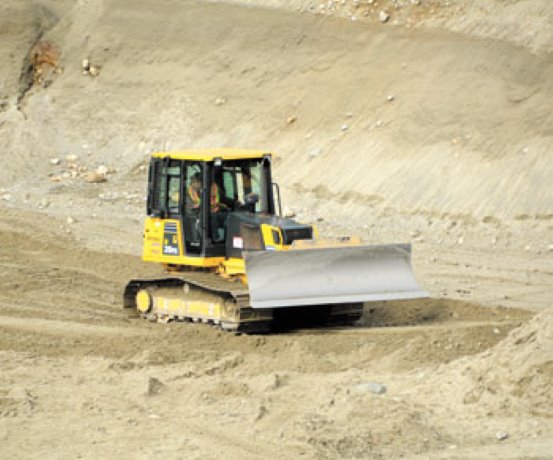The Industry Training Authority (ITA) in B.C. is co-ordinating the development of Red Seal standards for heavy equipment operators (HEO) across Canada.
The Industry Training Authority (ITA) in B.C. is co-ordinating the development of Red Seal standards for heavy equipment operators (HEO) across Canada.
B.C.’s Transportation Career Development Association (TCDA), an independent, not-for-profit industry training organization (ITO), has been working with its counterparts in Newfoundland, Nova Scotia, Prince Edward Island, New Brunswick and Quebec since 2010 on the project.
Russell Robertson, the authority’s CEO, said he expects Red Seal standards for heavy equipment operators to be launched by the end of 2012.
Robertson said B.C. is the host province because its HEO training standards are more developed than in other Canadian jurisdictions.
B.C.’s standards were created by the human resources division of the B.C. Road Builders and Heavy Construction Association in 2004-2005 and put in place by the ITA in 2006.
TCDA is responsible for developing and maintaining the standards of the program, while the ITA approves the standards, funds training and awards certification.
“B.C. is fortunate to have the kind of government-industry relationship through its ITOs and the ITA that it has,” Robertson said.
“Each industry sets the competency standards for each training program. In other provinces, the provincial government has that responsibility. We think B.C. has a more efficient model.”
The Red Seal certification process began when the Canadian Council of Directors of Apprenticeship (CCDA), which oversees the administration of Red Seal programs, verified there was sufficient future demand for heavy equipment operators to justify the program.
“We established there was a need for cross-country mobility of heavy equipment operators,” said Kevin Evans, CEO of ITA and B.C.’s representative on the CCDA.
Next, a national occupation analysis, which describes the scope of the occupation, was completed.
Now a standard examination is in the works.
After the examination has been created, the participating ITOs will bring in small groups of subject matter experts to conduct peer reviews.
They will write the exam, to determine the quality of the questions.
During this process, some questions will be clarified or removed and others added to take their place.
Then all the questions will be consolidated and given a final review.
TCDA and the other certification participants across the country communicate with each other by phone, email and video conferencing and at twice-a-year workshops at Red Seal headquarters in Ottawa.
Jack Davidson, president of B.C. Road Builders and Heavy Construction Association, said the impetus for developing HEO training standards was the skills shortage in the industry that began to manifest itself about five years ago.
“B.C. Roadbuilders determined the industry needed to set out a clear career path for young heavy equipment operators to follow,” he said.
Because there were no training standards in place, B.C. Roadbuilders, through its human resources department, worked with the ITA to establish programs and to start marketing them.
Red Seal apprenticeship is the next step in bringing standardized HEO training to as many operators in Canada as possible.
Davidson said Red Seal certification has a number of benefits.
“It means heavy equipment operator is recognized as a legitimate trade,” he said.
“It also means Red Seal is recognized as the way to get a trade ticket and it gives certified operators inter-provincial mobility.”
Davidson said the heavy equipment industry also benefits from having a national standard that can be used as a recruiting tool outside Canada.
In 2006, Kent Orrock, then with the human resources division of the B.C. Roadbuilders and today manager, standards, assessment and moderation with TCDA, was invited to go to Korea to bring B.C.’s HEO training program to that country.
“I worked with the Koreans for a total of two to four months, although I was actually inside the country for only one week,” Orrock said.
A total of 16 Korean operators went through the program and 12 came to Canada after they received their certification. Five found their way to B.C. and the rest went to Alberta and Saskatchewan.
Orrock said training might be offered to heavy equipment operators in other countries, if demand for workers warrants it.
“But, first we’ll wait and see if Red Seal certification increases mobility inside Canada, enough to increase the supply of operators,” he said.
Student operators receive both in-school and hands-on equipment training to learn the essential skills in safe operation.
Courses are available on 12 different pieces of heavy equipment.
Training takes place at a number of public universities, such as Thompson Rivers University (Kamloops and Williams Lake) and Vancouver Island University (Nanaimo and other towns on Vancouver Island) and at private training schools.











Recent Comments
comments for this post are closed